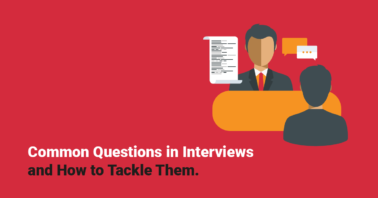In recent years, advancements in artificial intelligence (AI) have led to the emergence of AI therapists, virtual mental health support systems designed to provide therapeutic conversations and support. This novel development has sparked a wide-ranging debate about the effectiveness, ethics, and potential implications of using AI as a substitute for human therapists. While some argue that AI therapists can increase accessibility and reduce stigma around mental health, others express concerns about their ability to truly understand human emotions and provide genuine emotional support. This article delves into the pros and cons of engaging with AI therapists and the evolving landscape of mental health care.
The Pros of an AI Therapists
1. Accessibility: One of the most significant advantages of AI therapists is their accessibility. Many people around the world lack access to mental health services due to factors like cost, location, or stigma. AI therapists can bridge this gap by offering instant support to anyone with an internet connection, thereby making mental health care more inclusive.
2. 24/7 Availability: AI therapists are available round the clock, eliminating the need to wait for appointments or deal with time zone differences. This feature can be particularly beneficial for individuals in crisis or those struggling with insomnia or anxiety at odd hours.
3. Reduced Stigma: There remains a stigma around seeking help for mental health issues. AI therapists can serve as an initial stepping stone for those hesitant to approach human therapists, helping them gain confidence before considering traditional therapy.
4. Consistent and Non-Judgmental Support: AI therapists provide consistent support without judgment. People can share their thoughts and emotions without fear of being misunderstood or criticized, creating a safe space for expression.
The Challenge of AI Therapists
1. Lack of Empathy: One of the most significant drawbacks of AI therapists is their inability to truly understand human emotions and empathize. Human therapists draw from their own experiences and emotions to relate to clients, a dimension AI currently lacks.
2. Complexity of Human Emotions: Human emotions are complex and often intertwined, requiring nuanced understanding and empathy. AI therapists might struggle to grasp the intricate layers of emotions that individuals experience.
3. Missed Non-Verbal Cues: A substantial portion of human communication is non-verbal, including facial expressions, tone of voice, and body language. AI therapists cannot accurately interpret these cues, potentially leading to misunderstandings and ineffective responses.
4. Risk of Oversimplification: AI therapists rely on programmed algorithms to analyze and respond to text input. This may result in oversimplified responses that fail to address the depth of a person’s concerns.
The Ethical Considerations
1. Privacy and Data Security: Sharing personal thoughts and emotions with an AI raises concerns about data privacy and security. Users need assurance that their sensitive information will be safeguarded and not misused.
2. Dependency and Alienation: Excessive reliance on AI therapists might lead to a sense of alienation and social isolation. Genuine human connections are vital for emotional well-being, and AI should complement, not replace, these connections.
3. Misdiagnosis and Harm: There’s a risk that AI therapists could misdiagnose or provide harmful advice, especially if they lack the ability to understand the full context of an individual’s mental health situation.
Conclusion
The concept of AI therapists opens new avenues in the field of mental health care, but it also raises important questions about the limitations of technology in addressing complex human emotions. While AI therapists offer accessibility and anonymity, their inability to empathize and understand nuanced emotions is a significant drawback. Ultimately, the role of AI therapists should be seen as a supplementary tool in mental health care, working alongside human therapists to provide timely support while recognizing the irreplaceable value of human connection and empathy. Balancing the benefits of AI with the limitations it presents will be key in shaping the future of mental health support.





